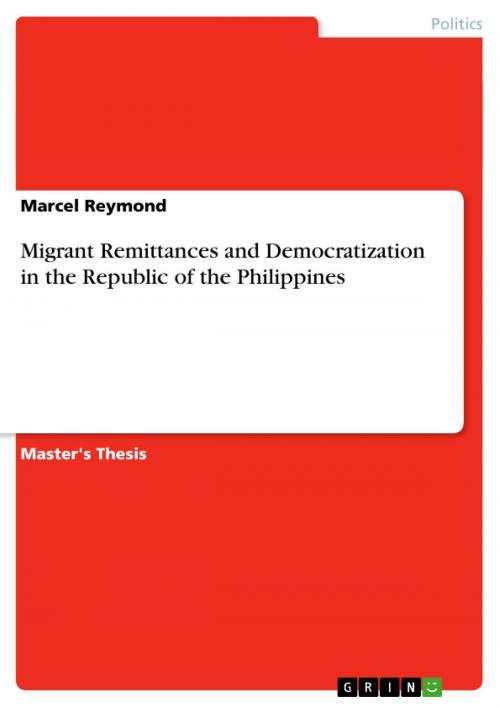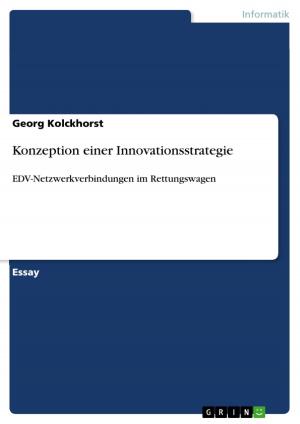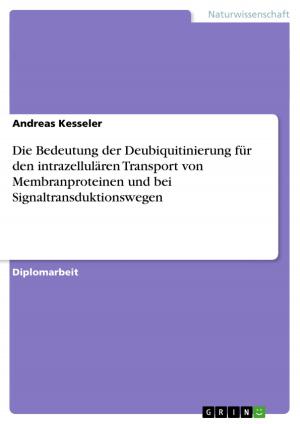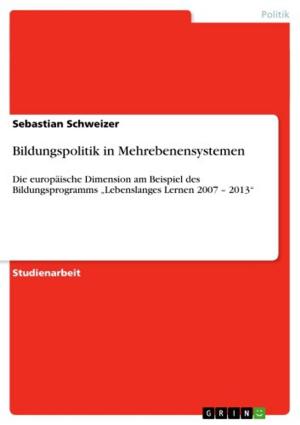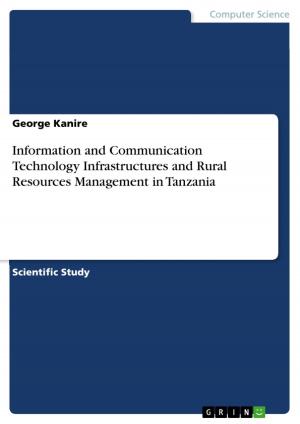Migrant Remittances and Democratization in the Republic of the Philippines
Nonfiction, Social & Cultural Studies, Political Science, International, International Relations| Author: | Marcel Reymond | ISBN: | 9783656724988 |
| Publisher: | GRIN Verlag | Publication: | August 21, 2014 |
| Imprint: | GRIN Verlag | Language: | English |
| Author: | Marcel Reymond |
| ISBN: | 9783656724988 |
| Publisher: | GRIN Verlag |
| Publication: | August 21, 2014 |
| Imprint: | GRIN Verlag |
| Language: | English |
Master's Thesis from the year 2013 in the subject Politics - International Politics - Region: South Asia, grade: A+, , language: English, abstract: This paper analyzes the remittances and democratization nexus, using the Republic of the Philippines as a case study. The onset of this paper is a riddle. A number of scholars stress the positive impact of remittances on a society and its democratization. The Philippines has successfully sought to gain more remittances through a state driven labor export scheme and has been for many years among the top receiving countries in the world. Despite those conditions deemed propitious to democratization, the Philippines show many democracy deficits. Several scholars have claimed that remittances impact positively on democratization. However, a range of democratization indicators for the Philippines, belie this assertion. This paper delves into various aspects of the democratization, migration and remittance dynamics. Firstly, it examines the scholarly work on remittances (always understood in a wider sense, as comprising social and financial remittances) and the democratization history in the Philippines. Secondly, it argues the methodology used for this paper. Thirdly, it evaluates and describes a selected number of particularities of the Philippine democratic system and its labor export scheme. It interprets the impact of remittances on democratization in the Philippines before drawing conclusions. TABLE OF CONTENTS Introduction5 Research Question and Thesis Statement7 Objectives of the Study7 Limitation of the Study7 Definition of Key Terms8 Chapter 1: Literature Review10 Chapter 2: Research Methodology16 Freedom in the World Index18 Corruption Perception Index19 Civic Society study20 Press-Freedom Index22 People under Threat Index23 Chapter 3: Findings and Analysis25 Assessment of the Philippine Democracy25 Political system26 Economic situation31 GINI Index35 The labor export scheme36 Financial remittances40 Civil Society42 Press freedom45 Peace and security46 Social remittances48 Summary of democratic assessment51 Democratization impact of remittances in the Philippines53 Conclusion and recommendations for further research55 Bibliography59
Master's Thesis from the year 2013 in the subject Politics - International Politics - Region: South Asia, grade: A+, , language: English, abstract: This paper analyzes the remittances and democratization nexus, using the Republic of the Philippines as a case study. The onset of this paper is a riddle. A number of scholars stress the positive impact of remittances on a society and its democratization. The Philippines has successfully sought to gain more remittances through a state driven labor export scheme and has been for many years among the top receiving countries in the world. Despite those conditions deemed propitious to democratization, the Philippines show many democracy deficits. Several scholars have claimed that remittances impact positively on democratization. However, a range of democratization indicators for the Philippines, belie this assertion. This paper delves into various aspects of the democratization, migration and remittance dynamics. Firstly, it examines the scholarly work on remittances (always understood in a wider sense, as comprising social and financial remittances) and the democratization history in the Philippines. Secondly, it argues the methodology used for this paper. Thirdly, it evaluates and describes a selected number of particularities of the Philippine democratic system and its labor export scheme. It interprets the impact of remittances on democratization in the Philippines before drawing conclusions. TABLE OF CONTENTS Introduction5 Research Question and Thesis Statement7 Objectives of the Study7 Limitation of the Study7 Definition of Key Terms8 Chapter 1: Literature Review10 Chapter 2: Research Methodology16 Freedom in the World Index18 Corruption Perception Index19 Civic Society study20 Press-Freedom Index22 People under Threat Index23 Chapter 3: Findings and Analysis25 Assessment of the Philippine Democracy25 Political system26 Economic situation31 GINI Index35 The labor export scheme36 Financial remittances40 Civil Society42 Press freedom45 Peace and security46 Social remittances48 Summary of democratic assessment51 Democratization impact of remittances in the Philippines53 Conclusion and recommendations for further research55 Bibliography59
